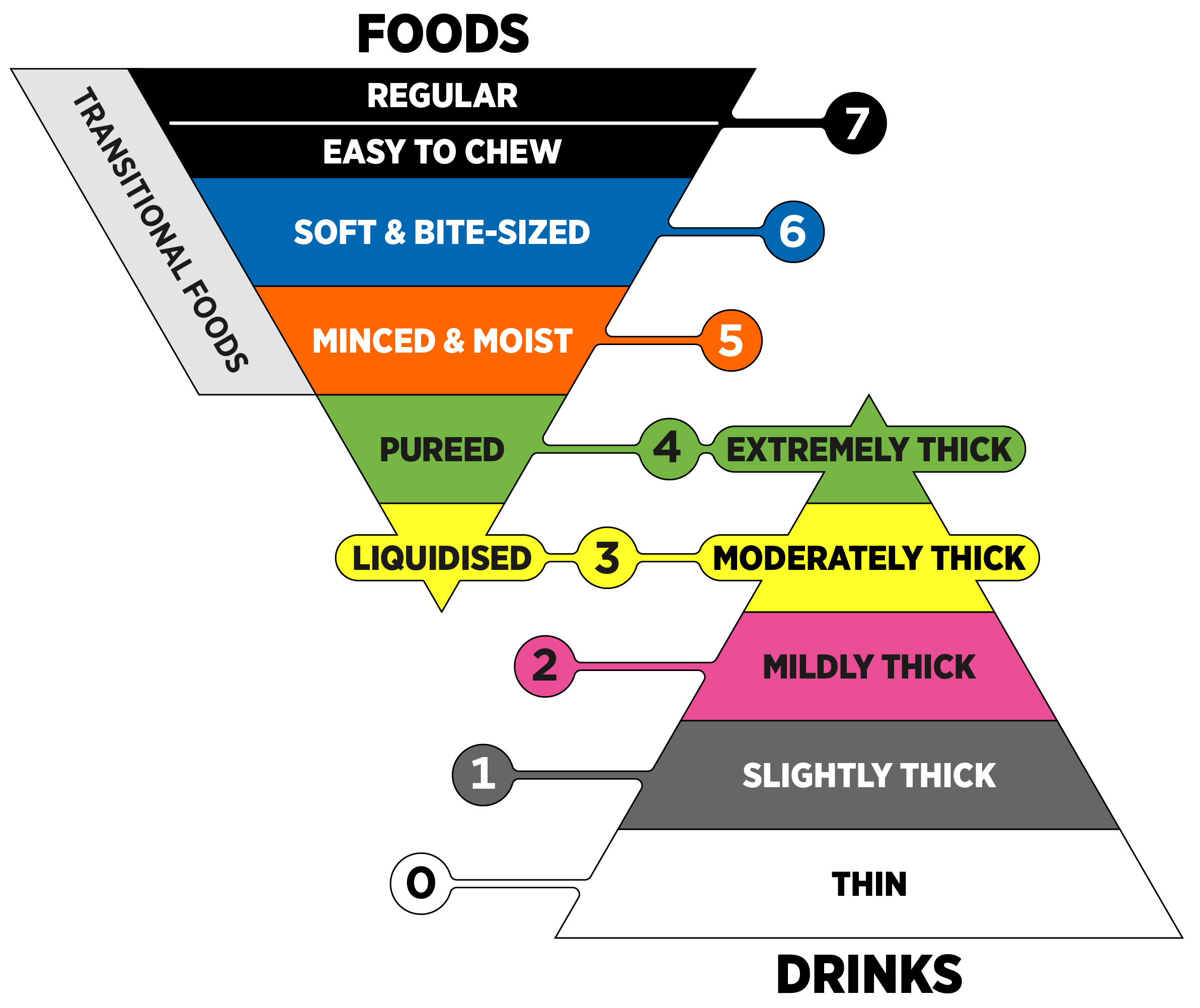Trouble with swallowing can originate anywhere in the mouth, throat, or esophagus. This is called dysphagia.
What causes swallowing problems?
When we swallow, many muscles and nerves work together to get food or drink from our mouths into our stomachs. The brain controls all these muscles and movements of the mouth. It is common after severe brain injury for a person to lose the ability to swallow safely. If your loved one cannot swallow on their own, often doctors will recommend the use of tube feeding to supplement nutrition. See the nutrition section for information on types of tube feeding. At this point it is also very important to provide good and safe oral care. Your treatment team will provide and educate you on best practices.
Disorders of Consciousness Patient/Family Manual (PDF)
From Spaulding Rehabilitation Network
Swallowing problems or dysphagia information is on page 29.
How are swallowing problems/dysphagia assessed?
While you are in the hospital, a team of clinicians will help your loved one with swallowing problems, or dysphagia. A speech-language pathologist and doctor will work closely together to evaluate your loved ones' needs. Swallowing can be complicated, and problems can occur at different stages of the swallowing process.
Swallowing Difficulties
From Shepherd Center
Information on the stages of swallowing, symptoms, and treatments.
Thermal-Tactile Stimulation (TTS) (PDF)
From TIRR Memorial Hermann
Information on Thermal-Tactile Stimulation, a specific type of treatment for swallowing difficulties.
How do doctors and specialists assess when your loved one is ready to eat?
Your doctor and the speech-language pathologist will work together to determine when your loved one with DoC is ready to eat. There are several tools to do this:
- Bedside Swallow Evaluation: This is a process used by the speech-language pathologist to examine if your loved one shows any signs and symptoms that indicate a swallowing problem. This is important as your loved one may be at high risk for aspirating into their lungs, which can cause pneumonia. The speech-language pathologist will use this information to determine if it is appropriate to start eating or if further evaluation is required.
- Modified Barium Swallow Study (MBSS): This is an x-ray that records a video of your loved one's mouth, throat, and esophagus while drinking liquid with barium or eating food with barium. From there, the speech-language pathologist and radiologist can see if the swallowing process is normal or still has risk of aspiration into the lungs.
- Endoscopic Assessment (or Fiberoptic Endoscopic Evaluation of Swallowing, FEES): In this process, a lighted scope (tiny camera on a tube) is inserted into the nose to the level of the throat, and clinicians then observe the swallowing process on a screen.
Once the doctor and clinician assess your loved one's ability to swallow and determine that there is minimal risk of aspiration, they will determine the right kind of consistency of drinks and food to start with.
The IDDSI Framework explains some of the consistency of foods that may be recommended:
Other specialists may use a different model to explain the consistency of foods. The important thing to know is that clinicians will make decisions about the types and consistencies of food your loved one is ready for, to prevent any complications.
What can I do to help with swallowing, diet, and nutrition once my loved one is eating again?
- Talk to your doctor (or a dietician who knows about brain injury) about a diet that will help with healing after a brain injury.
- Offer small, frequent meals.
- Focus on whole foods: fruit, vegetables, low-fat meat (chicken and fish), and whole grains.
- Have protein at every meal or snack.
- Make sure your loved one is getting an appropriate amount of water throughout the day.
Do swallowing problems get better?
Yes, swallowing problems can improve. Oftentimes, as individuals increase their level of arousal and awareness, they will start to initiate swallowing. Your speech-language pathologist will work with you and your loved one to improve coordination and strength of swallowing as your loved one recovers.
Disorders of Consciousness Patient/Family Manual (PDF)
From Spaulding Rehabilitation Network
Swallowing information and what to expect for swallowing improvement is on page 29.

